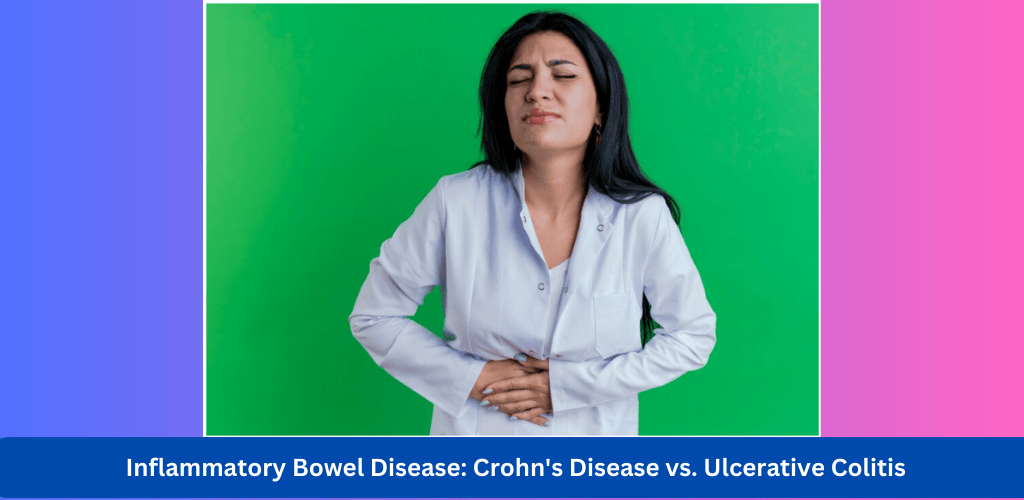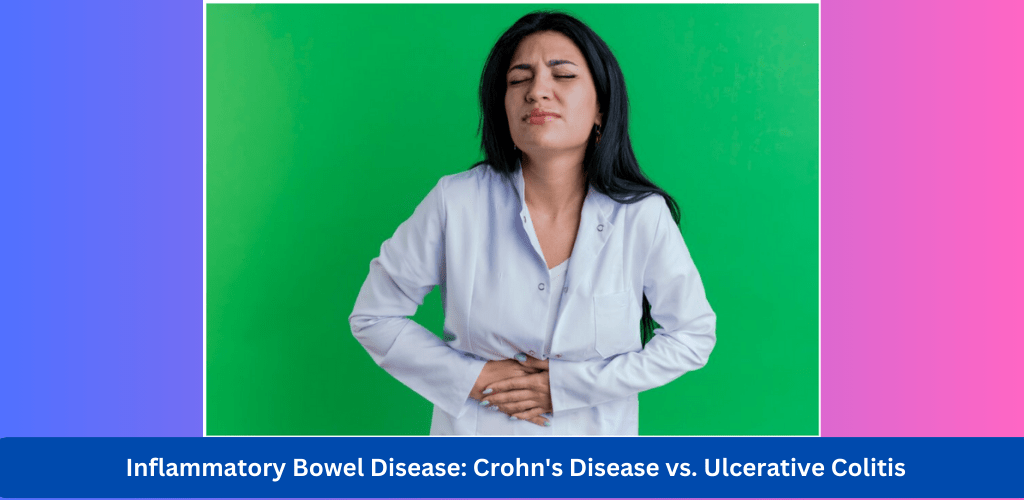Inflammatory Bowel Disease: Crohn's Disease vs. Ulcerative Colitis

Inflammatory Bowel Disease: Crohn's Disease vs. Ulcerative Colitis

Inflammatory Bowel Disease encompasses a group of chronic inflammatory conditions affecting the gastrointestinal (GI) tract. Among the most prevalent forms of IBD are Crohn's Disease and Ulcerative Colitis, each characterized by distinct symptoms, locations within the digestive system, and management strategies.
Understanding Inflammatory Bowel Disease
Inflammatory Bowel Disease involves chronic inflammation of the GI tract, thought to arise from an abnormal immune response influenced by genetic predisposition and environmental factors. Symptoms typically include abdominal pain, diarrhea, fatigue, and weight loss, which can vary in severity and duration.
Crohn's Disease
Crohn's Disease is known for its potential to affect any part of the GI tract, although it commonly involves the end of the small intestine (ileum) and the beginning of the colon. Inflammation in Crohn's Disease can occur in patches, impacting multiple layers of the bowel wall.
Symptoms of Crohn's Disease include:
-
Persistent diarrhea, sometimes bloody
-
Abdominal pain and cramping, often in the lower right abdomen
-
Fatigue
-
Unintended weight loss
-
Fever
Complications of Crohn's Disease may include strictures (narrowing of the intestine), fistulas (abnormal connections between organs), and abscesses. Treatment typically involves a combination of medications such as corticosteroids, immunosuppressants, and biologics to manage inflammation and symptoms. Surgery may be necessary to remove damaged sections of the intestine or manage complications.
Ulcerative Colitis
Ulcerative Colitis is limited to the colon and rectum, typically beginning in the rectum and extending continuously through the colon. Unlike Crohn's Disease, which can affect all layers of the bowel wall, Ulcerative Colitis primarily affects the inner lining of the colon.
Symptoms of Ulcerative Colitis include:
-
Bloody diarrhea, often with mucus
-
Abdominal pain and cramping, usually in the lower abdomen
-
Urgency to defecate
-
Fatigue
-
Weight loss
Complications of Ulcerative Colitis can include severe bleeding, perforation of the colon, and an increased risk of colon cancer. Treatment involves medications such as aminosalicylates, corticosteroids, immunosuppressants, and biologics to control inflammation and alleviate symptoms. Surgery may be considered in cases of severe disease or if medical therapy fails to achieve remission.
Comparing Crohn's Disease vs. Ulcerative Colitis
When comparing crohn's disease vs ulcerative colitis, several key differences emerge:
-
Location: Crohn's Disease can affect any part of the GI tract, while Ulcerative Colitis is confined to the colon and rectum.
-
Pattern of Inflammation: Crohn's Disease involves patchy inflammation with healthy tissue between affected areas, whereas Ulcerative Colitis causes continuous inflammation primarily affecting the inner lining of the colon.
-
Complications: Crohn's Disease may lead to complications such as strictures, fistulas, and abscesses, while Ulcerative Colitis is associated with an increased risk of colon cancer and may necessitate surgical intervention in severe cases.
Conclusion
Inflammatory Bowel Disease, encompassing Crohn's Disease and Ulcerative Colitis, presents significant challenges due to its chronic nature and potential for complications. Effective management requires a personalized approach tailored to each patient's specific symptoms, disease location, and response to treatment. Advances in medical therapies and surgical techniques continue to improve outcomes and quality of life for individuals living with IBD.
- Art
- Causes
- Crafts
- Dance
- Drinks
- Film
- Fitness
- Food
- Games
- Gardening
- Health
- Home
- Literature
- Music
- Networking
- Other
- Party
- Religion
- Shopping
- Sports
- Theater
- Wellness
- IT, Cloud, Software and Technology


